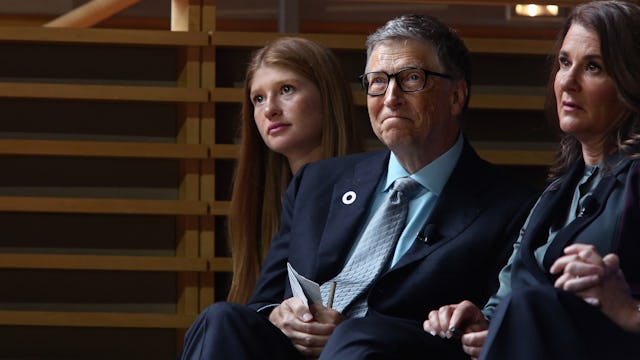Bill Gates And Steve Jobs Limited Their Kids' Tech Use, Which Should Be A Giant Hint To The Rest of Us

One thing most tech giants have in common? They severely limit their kids when it comes to the devices and platforms they’ve created
It’s a daily struggle for parents to come up with rules related to screen time and technology — and an entirely different struggle to consistently uphold those rules. If you’re ever considering becoming more lenient, or feeling like giving in because your kids’ friends have phones and iPads, it’s important to remember that many tech gurus, including Bill Gate and the late Steve Jobs, fully knew the power of the devices they created — and made sure their kids didn’t get too much exposure too soon.
In 2010, New York Times reporter Nick Bilton asked Apple founder Steve Jobs how his kids like the new iPads. He was shocked when Jobs replied: “They haven’t used it. We limit how much technology our kids use at home.”
While you might guess that Jobs’ four kids would have been tech geeks since they were in diapers, the truth is that they were the opposite — every night at dinner, the family would sit together at a long dinner table and discuss topics of books and history, not a screen in sight.
Microsoft billionaires Bill and Melinda Gates took the same path as Jobs. Their three kids, Jennifer, Rory, and Phoebe, didn’t get smart phones until they turned 14, even though the current average age of kids getting their first smart phone has dropped to 10. The pair also had two other strict rules for their kids: no screens at the dinner table and no screens in their bedrooms.
Gates has explained that they set rules after his eldest daughter developed an addiction to a video game. “You’re always looking at how [technology] can be used in a great way — homework and staying in touch with friends — and also where it has gotten to excess,” he explained to The Mirror.
Evan Williams, who helped found social sites like Blogger, Twitter, and Medium, told the New York Times that he and his wife have swapped out iPads for hundreds of books instead.
It’s extremely telling that the men and women who create our phones, tablets, and computers — as well as the people who create our social platforms and apps — know both the power and danger that these pieces of software and hardware can have over our kids.
Specifically, screen time can not only lead to sedentary kids who lack imagination and problem-solving skills, it can also greatly increase their chances of depression, disrupt their sleep, and increase stress. Not only that, but social sites and video games can harm the brain’s reward system, expose your kids to cyberbullying, and give them access to age-inappropriate material.
Of course, as Gates said, technology has an important place in our lives and our kids schools, as long as it’s used carefully, such as for education or to keep in touch with loved ones. Using tech and screens for specific purposes and in limited ways can help kids — Ali Partovi, a former advisor to Facebook and DropBox as well as another low-tech parent, draws lines between using technology to consume (like watching videos) and using technology to create (such as making films or drawing pictures).
But research shows that delaying tech use in kids can help their grades, their sleep, and their overall happiness — and the men and women who create the screens agree. It should be a big hint to parents, who can get proactive by making rules about time limits, app access, and scree-free areas, or who can sign the “Wait Until 8th” pledge to delay smart phones for your kids until they’re in eighth grade.